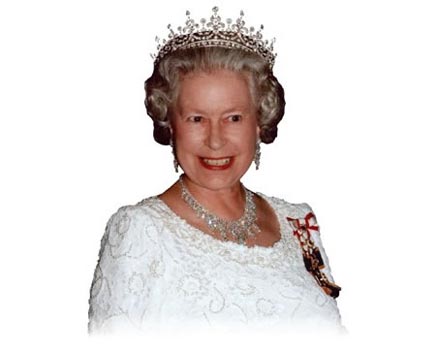Moldovan wine - Needs more drinkers than Queen Elizabeth
 Chisinau - Moldova's best tipples are good enough for Queen Elizabeth, but the former Soviet republic's wine industry needs more than royal favour to keep the vintages coming.
Chisinau - Moldova's best tipples are good enough for Queen Elizabeth, but the former Soviet republic's wine industry needs more than royal favour to keep the vintages coming.
The Negru de Pucari 1990 is the top end of Moldova's wine industry. The ruby dark dry red is a mix of Cabernet Souvingon, Saperavi, and Moldova's own Rara Neagra grapes.
The English monarch "regularly orders" the wine for its rich bouquet, and also quite possibly as a smart investment - in 1990 Moldova was passing through economic crisis, and despite the outstanding grapes of that year wine production in the former Soviet republic was tiny, Moldovan wine experts said.
"But in general, the world just doesn't know our wines," explained Samuil Pic, director of the Allianta-Vin vinery. "Even though by pretty much any standard you want, Moldovan wine is competative."
Despite Moldova's tiny size - the landlocked country is slightly larger than Belgium but contains half the population - there are Modovan wines with medals aplenty to back up Pic's claim.
One of the most recent is a Clos de Corten 2005 Private Reserve produced by Acorex Wine, recipient of last year's Charndonnay du Monde gold medal.
"This full rich wine has a straw color with an ideally balanced bouquet, in which you can taste the notes of exotic fruit, peach, vanilla, butter, hazelnut and a ruddy crust of bread," according to an Acorex statement.
Other Moldovan wines recently winning top medals include Pucari's 2003 Pinon Noir, the Lion Gri vinery's 2003 Sauvignon Blanc, a 2005 Merlot produced by Chateu Mertely, and Black Doctor, an inky crimson blend of Saperavi grapes, fermented by Vinaria Bostovan.
"A full, harmonic taste with shades of reticence and subtle aroma of plums and chocolate," reports the Bostovan web site. "Semi-sweet to sweet, this wine is also suitable for mass production."
Moldovan archaeologists believe people were fermenting grapes in the Dniestr River valley - now modern Moldova - for at least the last 6,000 years continuously.
Moldovan wine has over the years weathered some of the worst challenges faced by vintners anywhere, among them drought, flood, invasion, 400 years of Moslem government technically banning intoxicating drink, and an ill-fated Soviet attempt to reduce alcoholism by ordering millions Moldova's vines ripped out by the roots.
Perhaps the worst disaster struck in the early 1900s in the form of the phylloxera bacterium, demolishing stock of Moldova's native grapes, and by the late 1930s leaving Moldova with four-fifths of its vineyards planted with foreign or hybrid vines.
Today, winemaking is Moldova's number one industry, accounting for more than half of foreign exports and close to a quarter of the country's GDP, according to Ministry of Agriculture data.
The most desired, predominantly vintage reds including the Pucaris sipped by English Royals come from the rolling hills in Moldova's southeast. But equally important are the mostly dry whites from Moldova's cooler and more forested central districts, and sweet dessert wines drawn from Moldova's sunny southern provinces adjacent to the semi-tropical Danube River delta.
"It's not supply, the hard thing is finding customers, our domestic market is saturated, and don't forget most rural household makes their own wine," said Edgar Dmitriescu, a wine exporter.
"Marketing our wine abroad takes big money, and we just don't have it."
Dmitriescu and every other Moldovan wine professional interviewed complained of excessive government regulation, taxes, and outright bribe extortion making Moldovan wine, delivered to a European supermarket, more expensive even than even Chilean or Australian competition.
Kremlin political pressure on Moldova is another problem, with Moscow currently only allowing bottled Moldovan wine into Russia, while continuing to ban high-volume deliveries by tanker truck or rail car, critical for a wine industry's growth.
"Without high volume sales to Russia, which has always been our biggest market, our wine industry won't have the capital to fight for European markets," Dmiriescu said.
"If a European wants to try our wine, for the near future he probably will have to come here," he added. (dpa)